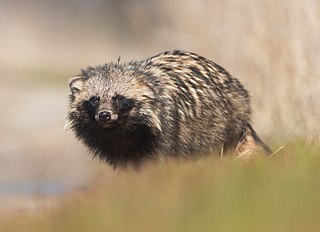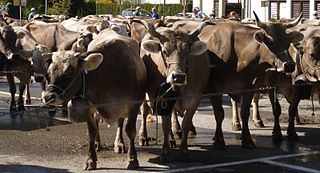
Apocalyptic and post-apocalyptic fiction is a subgenre of science fiction in which the Earth's civilization is collapsing or has collapsed. The apocalypse event may be climatic, such as runaway climate change; astronomical, such as an impact event; destructive, such as nuclear holocaust or resource depletion; medical, such as a pandemic, whether natural or human-caused; end time, such as the Last Judgment, Second Coming or Ragnarök; or any other scenario in which the outcome is apocalyptic, such as a zombie apocalypse, cybernetic revolt, technological singularity, dysgenics or alien invasion.

Alien invasion or space invasion is a common feature in science fiction stories and film, in which extraterrestrial lifeforms invade the Earth to exterminate and supplant human life, enslave it, harvest people for food, steal the planet's resources, or destroy the planet altogether. It can be considered as a science-fiction subgenre of the invasion literature, expanded by H. G. Wells's seminal alien invasion novel The War of the Worlds.

The common raccoon dog, also called the Chinese or Asian raccoon dog to distinguish it from the Japanese raccoon dog, is a small, heavy-set, fox-like canid native to East Asia. Named for its raccoon-like face markings, it is most closely related to foxes. Common raccoon dogs feed on many animals and plant matter, and are unusual among canids in that they hibernate during cold winters and can climb trees. They are widespread in their native range, and are invasive in Europe where they were introduced for the fur trade. The similar Japanese raccoon dog, native to Japan, is the only other living member of the genus Nyctereutes. Other names for the common raccoon dog include mangut, and neoguri.

An introduced species, alien species, exotic species, adventive species, immigrant species, foreign species, non-indigenous species, or non-native species is a species living outside its native distributional range, but which has arrived there by human activity, directly or indirectly, and either deliberately or accidentally. Non-native species can have various effects on the local ecosystem. Introduced species that become established and spread beyond the place of introduction are considered naturalized. The process of human-caused introduction is distinguished from biological colonization, in which species spread to new areas through "natural" (non-human) means such as storms and rafting. The Latin expression neobiota captures the characteristic that these species are new biota to their environment in terms of established biological network relationships. Neobiota can further be divided into neozoa and neophyta (plants).

Avian influenza, also known as avian flu, is a bird flu caused by the influenza A virus, which can infect people. It is similar to other types of animal flu in that it is caused by a virus strain that has adapted to a specific host. The type with the greatest risk is highly pathogenic avian influenza (HPAI).

Robert Brian "Robin" Cook is an American physician and novelist who writes about medicine and topics affecting public health.

Influenza A virus subtype H5N1 (A/H5N1) is a subtype of the influenza A virus which can cause illness in humans and many other species. A bird-adapted strain of H5N1, called HPAI A(H5N1) for highly pathogenic avian influenza virus of type A of subtype H5N1, is the highly pathogenic causative agent of H5N1 flu, commonly known as avian influenza. It is enzootic in many bird populations, especially in Southeast Asia. One strain of HPAI A(H5N1) is spreading globally after first appearing in Asia. It is epizootic and panzootic, killing tens of millions of birds and spurring the culling of hundreds of millions of others to stem its spread. Many references to "bird flu" and H5N1 in the popular media refer to this strain.

First Wave is a Canadian science fiction drama television series, filmed in Vancouver, that aired from 1998 to 2001 on the Space Channel in Canada. The show was created and written by American screenwriter Chris Brancato. Francis Ford Coppola was executive producer on the show. In an unusual move, the Sci-Fi Channel, which picked up the show in late 1998, later expanded their pickup of the series to a 66-episode order. The show was subsequently cancelled once the 66-episode order was filled at the end of the third season due to disappointing ratings.

Outbreak is a medical thriller written by Robin Cook and published in 1987 which deals with an outbreak of the deadly Ebola virus in the United States.
"Infinite Regress" is the 101st episode of Star Trek: Voyager, the seventh episode of the fifth season. The show depicted a Starfleet spacecraft slowly making its way back to Earth after being stranded in the Delta Quadrant.
Invasion is a 1997 miniseries based on the novel of the same name by Robin Cook. It starred Luke Perry, Kim Cattrall and Rebecca Gayheart.
Hugh Walter Gilbert Cook was a cult author, whose works blend fantasy and science fiction. He is best known for his series Chronicles of an Age of Darkness.

Many works of fiction have featured UFOs. In most cases, as the fictional story progresses, the Earth is being invaded by hostile alien forces from outer space, usually from Mars, as depicted in early science fiction, or the people are being destroyed by alien forces, as depicted in the film Independence Day. Some fictional UFO encounters may be based on real UFO reports, such as Night Skies. Night Skies is based on the 1997 Phoenix UFO Incident.
An ethnic bioweapon is a hypothetical type of bioweapon which could preferentially target people of specific ethnicities or people with specific genotypes.

The Outer Limits is a television series that originally aired on Showtime, Syfy, and in syndication between 1995 and 2002. The series is a revival of the original The Outer Limits series that aired from 1963 to 1965.

The Colonists are an extraterrestrial species and are also the primary group of antagonists in the science fiction television show The X-Files as well as the first X-Files feature film. The mystery revolving around their identity and purpose is slowly revealed across the course of the series. In the series' plot, the Colonists are collaborating with a group of United States government officials known as the Syndicate in a plan to colonize the Earth, hence their name.
100 of the World's Worst Invasive Alien Species is a list of invasive species compiled in 2000 from the Global Invasive Species Database, a database of invasive species around the world. The database is run by the Invasive Species Specialist Group (ISSG) of the International Union for Conservation of Nature (IUCN). The ISSG acknowledges that it is "very difficult to identify 100 invasive species from around the world that really are 'worse' than any others. ... Absence from the list does not imply that a species poses a lesser threat." In 2013, the ISSG updated their list to supersede the recently eradicated † rinderpest virus, and a few genus and species names were altered.

The monkeypox virus, is a species of double-stranded DNA virus that causes mpox disease in humans and other mammals. The monkeypox virus is a zoonotic virus belonging to the orthopoxvirus genus, making it closely related to the variola, cowpox, and vaccinia viruses. MPV is oval-shaped with a lipoprotein outer membrane. The genome is approximately 190 kb.
Biological warfare (BW)—also known as bacteriological warfare, or germ warfare—has had a presence in popular culture for over 100 years. Public interest in it became intense during the Cold War, especially the 1960s and '70s, and continues unabated. This article comprises a list of popular culture works referencing BW or bioterrorism, but not those pertaining to natural, or unintentional, epidemics.













